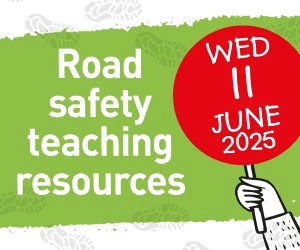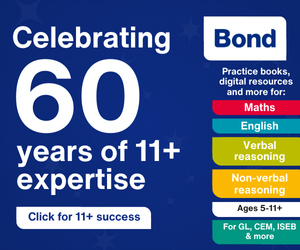Primary Times - the definitive what’s on and where to go family guide of activities and events for children of primary school age. Things to do with your kids during the school holidays including arts and craft activities, music and theatre for children, parties, competitions, days out, and family attractions along with term time drama schools, dance classes, after school clubs and sports activities. Things to do at a place near you!
Extra Tuition for children in Suffolk
Most parents want to avoid their children playing ‘catch up’ with their education and carefully address any issues that may be restricting their child from progressing to the next stage. A child may have a special educational need which, perhaps, has been undiagnosed or maybe a child would benefit from supplementary assistance in particular subjects to help keep them up to speed with their classmates. As a result many parents seek additional tuition to support their child’s school education. We’ve taken a closer look at what extra tuition is available here…

Grasping the fundamentals...
A solid primary education will lay firm foundations for children that will stand the test of time. Research shows us that a child, who has managed to grasp the basic fundamentals in primary education, will progress more quickly and is better equipped for the more complicated subject areas that will arise at secondary school and during further education. If there are any gaps in this primary education, he or she may be playing catch up through secondary school and beyond.
To keep their children apace with the work, and help them in areas of difficulty, many parents consider extra tuition. Of course, this comes at a price. It’s worth shopping around; some tutors may offer reduced rates - especially if a child needs help in more than one subject or if a sibling also needs tuition. Initially, tuition prices may appear on the steep side, but, on the whole, most parents really value the extra help and consider the money well worth spent as a wise long-term investment.
Additional tuition can make a huge difference to a child’s confidence and this is often matched with an eagerness to learn more. Plus, during the course of individual or concentrated learning, certain traits or sources of concern may be identified, such as dyslexia, which can be positively remedied using proven recognised techniques.
If you have decided to invest in additional education for your child, what options are open to you? The choice of different tutoring styles is pretty varied, and much of the success depends on how the individual child adapts to a particular programme.
Private Tuition
The first option available is to employ a tutor who educates on a one-to-one basis or who teaches in very small groups – usually no bigger than six. Sessions last between 30 minutes to one and a half hours, depending on the age of the child. The tutor, who is often usually a fully qualified primary school teacher, can steer the pupil in the right direction, working on strengths and addressing weaknesses. Often, after sessions, children are given ‘homework’ to complete independently at home. By employing a private tutor, parents avoid those occasionally fraught moments teaching their children themselves. As time moves on, with improved knowledge and skills, children will need less help with their school homework, too. To find a good tutor, you could ask your child’s teacher or quiz other parents for recommendations.
Tutorial Guidance
Another approach to providing extra tuition involves teamwork - part tutorial advice, part parental support and guidance. Rather than age, children are assessed on ability, and follow a specially designed individual programme drawn up by a tutor, to actively encourage the child to grasp skills to learn for themselves.
This is then supported by daily ‘homework’, seen under the watchful eye of a parent. Parents are advised to guide their child towards total independent learning. When a student can demonstrate total command of a topic, he or she can progress to a higher level.
Alternatively, parents can choose from an individual plans using traditional distance learning resources such as DVD’s and interactive internet programmes. Much of the success of these plans depends on the motivation and support of the parent. If cost is an issue, it’s worth rooting around in a decent bookshop where you will find a good number of Key Stage 1 and 2 workbooks. Many are simple to use and follow a day-by-day plan, using a star chart as physical proof of effort and progress. Again, although the books clearly demonstrate working out methods, a child will need parental help.
Parents who express an interest in helping with extra work will highlight its importance and reinforce the fact that it needs to be taken seriously. They will learn more about individual strengths, and identify subjects where more attention is required.
Extra help for Dyslexic Children:
Sometimes, it can be confusing if a child who appears to be very intelligent is struggling at school. If this sounds familiar, it’s worth checking to see if your child is dyslexic. Dyslexia is a specific learning difficulty which mainly affects language and literacy related skills. Many dyslexic children find school work difficult when their literacy and memory skills render them unable to tackle tasks they have been set. Many specialist tutors gear one-to-one sessions around particular needs, making allowances for the fact that dyslexic children are often exhausted after a day at school. Study is well structured. To find out more and a tutor near you go to: www.bdadyslexia.org.uk/
Tuition providers in and around Suffolk…
Boost your child's ability to learn at Ipswich Tuition Centre.png)
The friendly atmosphere, bespoke lessons and qualified teachers at Ipswich Tuition Centre can support the education of all children aged 6-16. At Ipswich Tuition Centre students are set Maths, English and Science tasks that are chosen specifically for their individual needs. Teachers, parents and students agree a learning pathway with specific goals, which enable progress to be tracked. They teach important fundamental skills and target the specific learning needs of the student using a mixture of computer and paper resources. There are no more than five students per tutorial so each child gets lots of attention from the teacher, but still benefits from working independently.
The Ipswich Tuition Centre caters for all student abilities and can help students prepare for entrance examinations, GCSEs and A levels. They have experts in Dyslexia, Irlens and ASD and a vast amount of experience throughout the teaching staff. Established for over 15 years, they receive excellent feedback from students and parents. Students are taught to learn independently which motivates, challenges and energises them to enjoy learning in all situations. Ipswich Tuition Centre accepts childcare vouchers. For more details call 01473 233735 or go to www.ipswichtuitioncentre.co.uk
Free trial with Kumon throughout February
Kumon offers individualised maths and English study programmes which are tailored to your child’s age and ability. Established for over 50 years, the Kumon programmes enable children to develop their study skills, confidently tackle advanced work, and boost their all-round confidence.
The Kumon programmes are worksheet-based study programmes, designed to pursue the potential of each child. Central to the Kumon Method is the principal of giving students the confidence and courage to confront new challenges and pursue goals.
Kumon develops children through the acquisition of independent learning skills, rather than teaching in the conventional sense. Your child will therefore be equipped with the ability to learn for themselves so they do not become dependent on – or limited by – the skills and knowledge of others. A free trial will be available throughout February at the Ipswich Central Study Centre. For more details contact
01473 614665.
Kite Opticians can help with your child’s reading difficulties
Some children suffer reading difficulties due to a condition called ‘Visual Stress’, also known as ‘Irlen Syndrome’. This presents the sufferer with difficulty processing the information they read on a page, with various symptoms such as words moving, blurred vision, headaches and eye-rubbing.
Visual stress is not the same as Dyslexia, but is present in around a third of Dyslexics. Adrian Kite, an Optometrist specialising in colour assessments, comments “Initially assessments are done with coloured plastic overlays and measurements of the rate of reading. If the use of overlays proves beneficial then precision tinted spectacle lenses are prescribed. This involves a more thorough assessment, with the ‘Intuitive Colorimeter’, as the tint needed for glasses will not be the same as the overlay due to its proximity to the eye. The use of the tint can dramatically improve fluency and accuracy of reading in a sufferer.” Further information can be found at: www.colorimetryinstitute.org.
Kite Opticians are winners of ‘Family Optician of the Year’ and can be found at 38 Berners Street, Ipswich, IP1 3LU. For details call 01473 255250 or go to www.kiteopticians.co.uk





